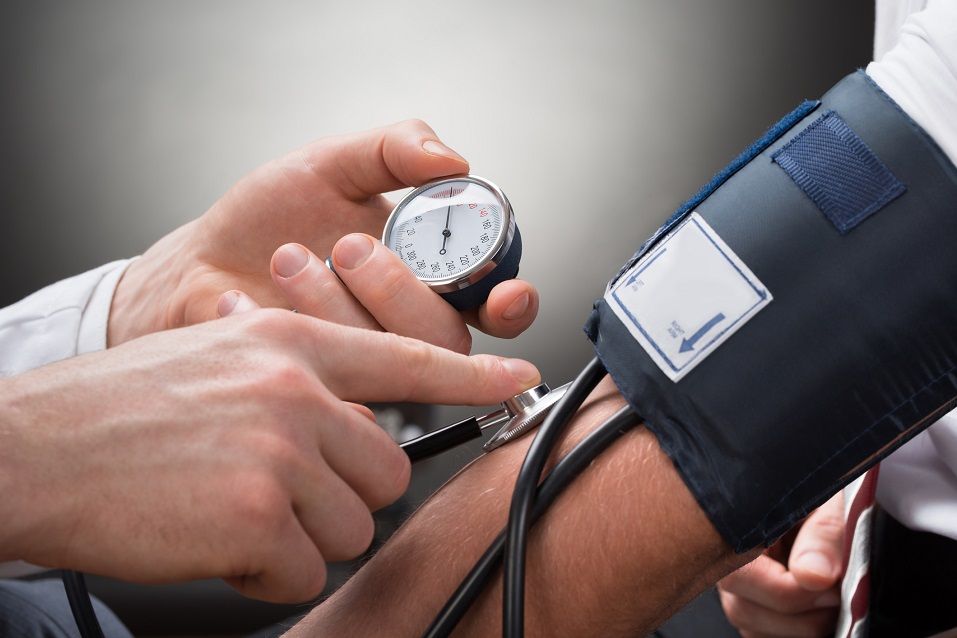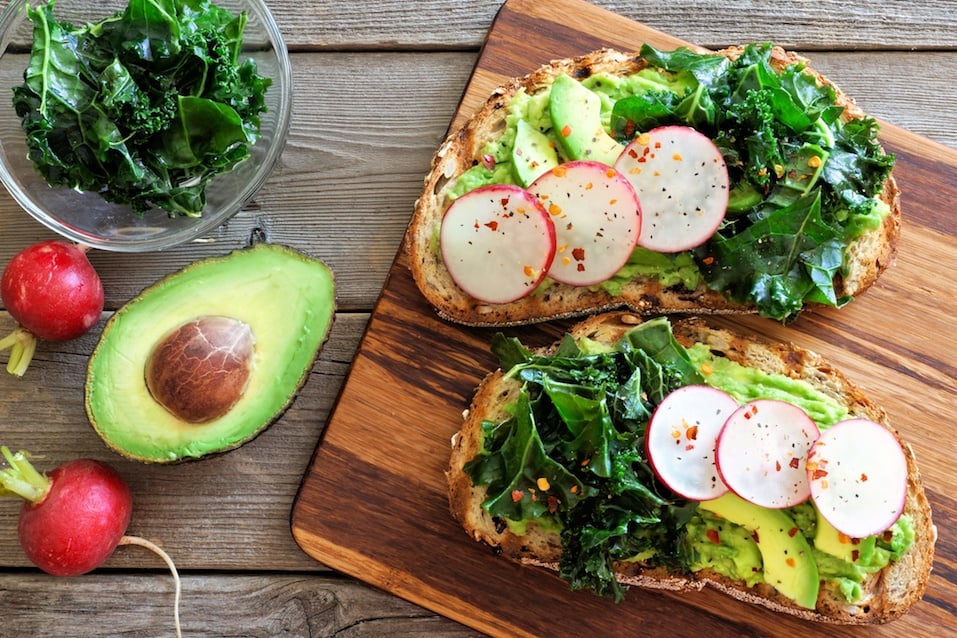High blood pressure is a major threat to your health — and if you’re one of the millions who has it, you’re certainly not alone. When you have hypertension, it means your heart is working overtime to ensure your blood is pumping properly. This then results in the pressure of your blood being too much for the walls of your arteries, which then causes significant damage. It’s easy to see how this disease greatly increases your risk for heart attack or stroke over time — and it can also raise your risk for other diseases.
High blood pressure and kidney failure are heavily related
A doctor checks a patient’s blood pressure. | iStock.com/AndreyPopov
According to the American Kidney Fund, high blood pressure is the second leading cause of kidney failure, and it can both cause and be the symptom of kidney disease. Your kidneys are made of blood vessels that work hard to clean your blood, the publication notes. When you have hypertension, the blood flows too forcefully through the vessels, causing damage. This eventually can cause your kidneys to not work properly, thus resulting in disease or failure.
Additionally, hypertension can also cause the arteries around your kidneys to narrow and harden, says the American Heart Association. The damaged arteries then won’t function as well or deliver as much enough blood to the kidneys.
Damaged kidneys can also make your blood pressure worse
While high blood pressure damages your kidneys, kidney disease can also raise your blood pressure. The AHA explains when your kidneys are healthy, they produce a hormone known as aldosterone. This helps regulate your blood pressure and keeps it low. However, when you sustain kidney damage (either from hypertension or for other reasons), your body will have a harder time keeping your blood pressure within a healthy range.
As the AHA put it, “Kidney damage and uncontrolled high blood pressure each contribute to a negative spiral.” To halt the spiral, you’ll need to make sure you’re keeping your kidneys and blood pressure healthy with your lifestyle (or, in some cases, with doctor-recommended medications).
Tips for keeping your blood pressure low
Man jogging outdoors | iStock.com
Lifestyle changes can make a huge difference in your blood pressure — and they could even be the difference in life or death. Here are some aspects you should consider.
Get moderate exercise every day:
If you’re not getting at least 30 minutes of moderate exercise daily, this is a good place to start. Try going for a walk for just 30 minutes every day. Not only will you likely see your stress levels decrease, but your heart will thank you for it. Alternatively, if you want to get more into exercise, you can go for 75 minutes of intense aerobic activity per day to also meet this goal.
Eat a heart-healthy diet:
You are what you eat — and in the case of high blood pressure, your diet has a lot to do with it. Not only should you be reducing your salt intake when you have hypertension, but you should also eliminate any processed or high-fat foods. Go for fresh veggies, dark leafy greens, lean meats, and plenty of fiber to keep your heart healthy.
Get a home monitor:
The best way to know if your blood pressure is at a healthy level is to get yourself a home monitor. This is particularly vital if you know you have “white coat hypertension” when you’re in the doctor’s office. Knowledge is power when it comes to your health, so don’t keep yourself in the dark.
Take medication:
When all else fails, medication can be life-saving. The American Kidney Fund recommends asking your doctor about ACE inhibitors or angiotensin receptor blockers. Both of these can help your blood pressure while also protecting your kidneys.
Tips for optimal kidney health
Avocado toast with kale and radish | Jenifoto/iStock/Getty Images
In addition to keeping to a healthy exercise routine and eating the right foods, there are other aspects of your life you can change to benefit your kidneys. Here’s what the National Kidney Foundation recommends:
Reduce cholesterol levels:
When you have high cholesterol, it’s bad news for both your heart and kidneys. Make sure you’re asking your doctor for a cholesterol test during your routine check-ups. And if your levels are too high, your doc may recommend either lifestyle changes or medication depending on how severe the issue is.
Keep your blood sugar in check, especially if you have diabetes:
When left untreated, diabetes can cause a range of issues over time that can severely harm your kidneys. Keeping your blood sugar levels low is a good rule of thumb to avoid damage. With decent self-management, you can avoid kidney damage and failure.
Watch your alcohol consumption and ditch smoking:
You know by now that alcohol isn’t great for your kidneys. If you do have concerns regarding your kidney health, it’s recommended that you limit your drinking. Also, if you haven’t given up smoking by now, it’s also a good time to get on board. Tobacco smoke is the “strongest modifiable risk factor” for kidney disease.
Check out The Cheat Sheet on Facebook!
Source: Read Full Article


